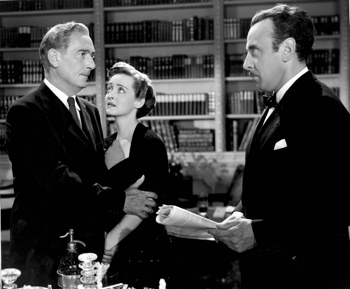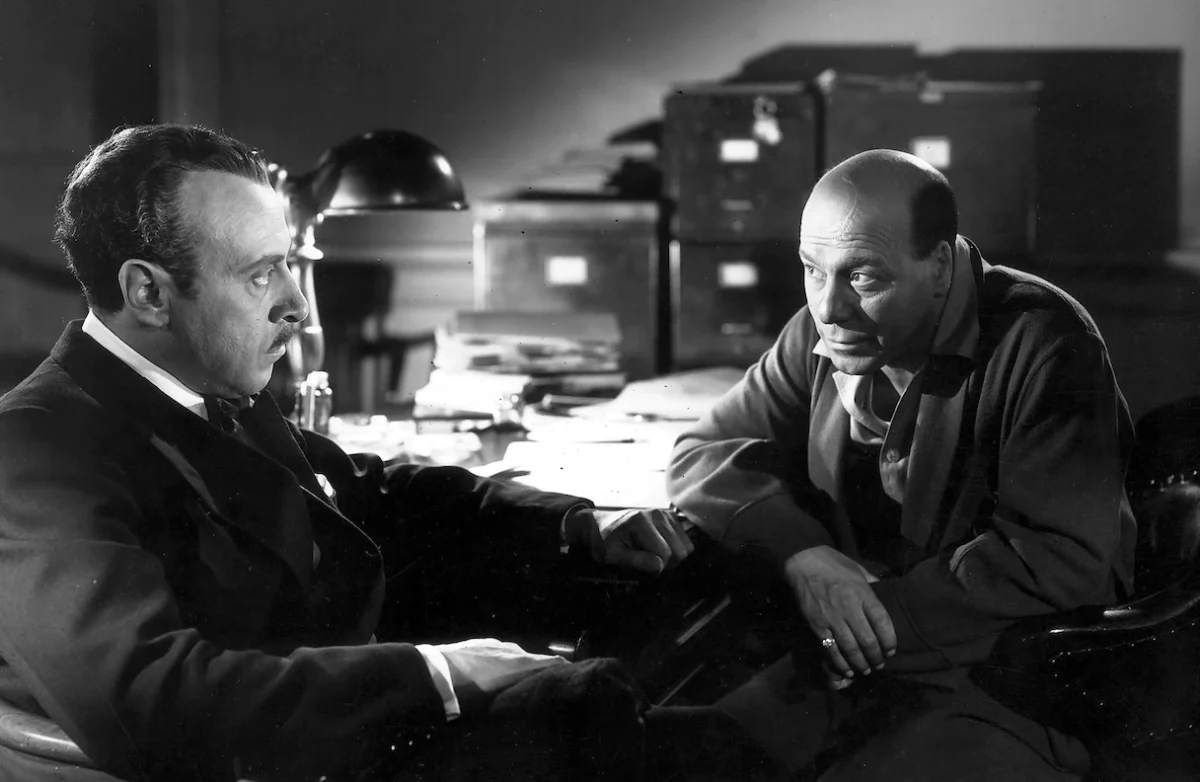When Watch on the Rhine was released in American theatres on September 4, 1943, a tipping point in World War II had already occurred. In an unmistakable signal that Germany was losing the war, the Wehrmacht had been defeated at the momentous Battle of Stalingrad in the Soviet Union. Yet nearly two more years would elapse before Nazi Germany finally surrendered, ridding the planet of the most evil, genocidal regime in modern history.
Herman Shumlin’s Warner Bros. film, based on a Lillian Hellman play and a screenplay written by Dashiell Hammett, is set in 1940, when the United States was a neutral power and still maintained normal diplomatic relations with Germany. It was a popular film, having been nominated for four Academy Awards, including best picture, and having won an Oscar for best performance from a male actor.
Screened recently on the Turner Classic Movies channel, it begins with a written foreword: “In the first week of April 1940, there were few men in the world who could have believed that in less than three months Denmark, Norway, Belgium, Holland and France would fall to the German invaders. But there were some men, ordinary men, not prophets, who knew this mighty tragedy was on the way. They had fought it from the beginning and they understood it. We are most deeply in ther debt. This is the story of one of these men.”
The man in question, Kurt Muller (Paul Lukas), is a German engineer and anti-fascist who brings his family to the United States by way of a circuitous route from Mexico. He arrives with his American wife, Sara (Bette Davis), and three children, Joshua, Bodo and Babette, all of whom are extraordinarily intelligent, articulate and loyal to their parents.
Having left Germany following the Nazi takeover, they lived in a succession of European countries before deciding to settle in the United States. Sara’s mother, Fanny Farrelly (Lucille Watson), has invited the Mullers to live in her spacious, well-appointed home where a deferential African American butler is at their beck and call.
Fanny already has two house guests, Count Teck de Brancovis (George Coulouris), a former Romanian diplomat, and his wife, Marthe (Geraldine Fitzgerald), who is having an affair with Sara’s younger brother, David (Donald Woods).

Unbeknownst to Fanny and David, the Romanian is a Nazi sympathizer who frequents the German embassy in Washington. His contact there, Blecher (Kurt Katch), is a strange bird, oddly referring to Adolf Hitler as “Schickelgruber, a paper hanger.”
When Fanny is introduced to Kurt Muller, a refined gentleman and a veteran of the Spanish Civil War, she blurts out, “You’re a good looking man for a German.” Fanny’s malapropism strikes a viewer as gratuitously anti-German per se.
As Muller and his wife discuss the dire situation in Europe, Sara turns glum. “Germany was going to pieces,” she muses. “We have seen the evil coming day by day.”
Sara is scared of the Romanian in her midst. She has reason to be suspicious of him. On instructions from the German embassy, he enters the Mullers’ bedroom, breaks the lock on Muller’s briefcase, and finds a revolver and wads of dollar bills inside. Sara discovers the intrusion and informs her husband of the break-in. By now, the tension between the Mullers and the Romanian enemy agent has burst into the open. In an implicit reference to the Romanian, Sara says, “The world has changed, and some of the people in it are dangerous.”
A viewer then learns that Muller is clandestinely returning to Germany on a special mission to rescue an anti-Nazi friend. The Romanian tries to blackmail Muller, but he blocks his plot.
The film is regrettably a tad too didactic, but it succeeds in informing an American audience that Europe is burning and that Americans must side with Western democracies against Nazi Germany.
Lukas and Davis are compellingly convincing as anti-Nazis, but Lukas’ heavy Hungarian accent does not exactly identify him as a German. Nonetheless, he won an Academy Award for best actor.
Despite its deficiencies, Watch on the Rhine is generally a fine film with a solid story line. It brings back the perilous days when the world was aflame and on the brink of total disaster.
